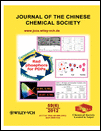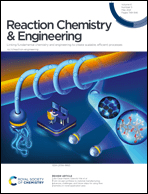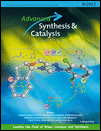
Reactions
Scope & Guideline
Igniting Ideas for a Sustainable Future in Chemistry
Introduction
Aims and Scopes
- Catalytic Processes and Reaction Mechanisms:
The journal emphasizes research on catalytic systems and their mechanisms, including heterogeneous and homogeneous catalysis, with a focus on improving reaction efficiency and selectivity. - Sustainable Chemistry and Green Processes:
A significant scope of the journal is dedicated to sustainable chemistry, including the valorization of biomass, green synthesis methods, and the development of eco-friendly catalysts to minimize environmental impact. - Nanotechnology and Materials Science:
Research involving the synthesis and application of nanomaterials, including nanoparticles and nanocomposites, is a core area, highlighting their roles in catalysis, drug delivery, and environmental remediation. - Biochemical and Biocatalytic Processes:
The journal covers studies on enzymatic and microbial processes, showcasing the potential of biocatalysts in the synthesis of fine chemicals and biofuels. - Thermodynamics and Kinetic Modeling:
There is a consistent focus on the thermodynamic and kinetic aspects of chemical reactions, providing insights into reaction conditions, mechanisms, and optimization strategies.
Trending and Emerging
- Biomass Valorization and Green Chemistry:
There is a growing emphasis on the conversion of biomass into valuable chemicals and fuels, showcasing the industry's shift towards renewable resources and sustainable practices. - Advanced Catalytic Systems:
Innovations in catalytic systems, including the development of novel catalysts and catalytic processes, are trending, particularly those that enhance efficiency and reduce environmental impact. - Nanomaterials in Environmental Applications:
The use of nanomaterials for environmental remediation and energy applications is increasingly prominent, reflecting a broader interest in sustainable solutions to environmental challenges. - Electrochemical Processes and Technologies:
Emerging research in electrochemistry, particularly in relation to energy storage and conversion, is gaining traction, highlighting the importance of electrochemical methods in modern chemical synthesis. - Integration of Artificial Intelligence and Machine Learning:
The incorporation of AI and machine learning techniques in chemical research for predictive modeling and optimization of reactions is an emerging trend, representing a significant technological advancement in the field.
Declining or Waning
- Traditional Organic Synthesis:
There is a noticeable decrease in publications focused solely on classical organic synthesis methods, as the journal shifts towards more innovative and sustainable approaches. - Inorganic Chemistry without Catalytic Context:
Research purely in inorganic chemistry, particularly without applications in catalysis, has seen a decline, indicating a preference for studies that integrate inorganic compounds within catalytic frameworks. - Conventional Fuel Production Methods:
Themes related to conventional fossil fuel production processes are becoming less frequent, as the journal increasingly prioritizes alternative energy sources and sustainable practices.
Similar Journals

RESEARCH ON CHEMICAL INTERMEDIATES
Illuminating Pathways in Chemical IntermediatesRESEARCH ON CHEMICAL INTERMEDIATES, published by Springer, is a prestigious academic journal that has been contributing to the field of chemistry since 1984. With an ISSN of 0922-6168 and an E-ISSN of 1568-5675, this journal serves as a vital platform for the dissemination of innovative findings and research advancements related to chemical intermediates. Situated in the Netherlands, it has established a commendable reputation, currently ranked in the Q2 category for miscellaneous chemistry and positioned at #131/408 with a 68th percentile in the Scopus rankings. Though it does not operate under an open-access model, the journal plays a crucial role in connecting scientists, researchers, and practitioners to facilitate a better understanding of synthetic methods, characterizations, and applications of various chemical intermediates. Continually publishing high-quality research until its anticipated convergence in 2024, this journal is an essential resource for those looking to expand their knowledge and contribute to the vibrant community of chemical science.

JOURNAL OF THE INDIAN CHEMICAL SOCIETY
Advancing Chemical Knowledge from India to the WorldJournal of the Indian Chemical Society, published by Elsevier, stands as a cornerstone in the field of chemistry, particularly representing the rich chemical research emanating from India.
With a significant history dating back to its establishment, this journal encompasses diverse disciplines including Drug Discovery, Electrochemistry, Inorganic Chemistry, Organic Chemistry, and Physical and Theoretical Chemistry, reflecting the evolving landscape of chemical sciences.
Despite being positioned in the Q3 category across multiple quarters, the journal demonstrates promising rankings in various chemistries, highlighting its commitment to advancing the knowledge and application of chemical sciences. While currently not available as an open access journal, the Journal of the Indian Chemical Society is dedicated to providing a platform for high-quality research that fosters innovation and collaboration among researchers, professionals, and students worldwide.
With its continuous publication from 1973 to the present, it serves as an essential repository for cutting-edge findings and developments in chemistry, striving to connect academia with industry and practice.

CCS Chemistry
Advancing Chemistry Through Open Access InnovationCCS Chemistry, published by the esteemed Chinese Chemical Society, is a leading open-access journal dedicated to advancing the field of chemistry. Since its inception in 2019, the journal has rapidly gained recognition, achieving a remarkable impact factor that places it in the prestigious Q1 category in Chemistry (Miscellaneous) as of 2023. With a Scopus ranking of #41 out of 408 in General Chemistry, CCS Chemistry represents the top 10th percentile in its category, reflecting its commitment to high-quality research and innovation. The journal serves as a vital platform for researchers and professionals to share their findings, showcase cutting-edge methodologies, and engage with the latest developments in various chemistry subfields. Accessible to a global audience, CCS Chemistry ensures that groundbreaking research is available without barriers, making it an indispensable resource for students and academics aiming to stay at the forefront of chemical sciences. For further details, submissions, and access to published articles, please visit the journal's website.

JOURNAL OF THE CHINESE CHEMICAL SOCIETY
Connecting Researchers with Pioneering DiscoveriesJOURNAL OF THE CHINESE CHEMICAL SOCIETY, published by WILEY-V C H VERLAG GMBH, is a vital resource in the field of chemistry, focusing on a broad array of topics pertinent to general chemistry and its advancing sub-disciplines. Established in 1954 and running through 2024, this journal serves as a significant platform for the dissemination of high-quality research, showcasing innovative findings and developments within the chemical sciences. With its Q3 category ranking and positioning at Rank #203 in General Chemistry per Scopus, it reflects the journal's commitment to research excellence and impact. While not an open-access publication, it ensures accessibility to a global audience, making it an essential tool for researchers, professionals, and students alike seeking to stay informed and engaged in the evolving landscape of chemistry.

KINETICS AND CATALYSIS
Innovating Through Interdisciplinary ResearchKinetics and Catalysis is a pioneering journal dedicated to advancing the field of catalytic science and chemical kinetics, published by Pleiades Publishing Inc. Based in the Russian Federation, this journal serves as a critical platform for disseminating high-quality research related to the mechanisms of chemical reactions and innovative catalytic processes. Although currently not an open access journal, it maintains academic rigor through a comprehensive peer-review process that ensures the relevance and integrity of its published works. With a history dating back to 1968, Kinetics and Catalysis has evolved through various converged years, reflecting its commitment to interdisciplinary research within the realms of chemistry, catalysis, and the computational aspects of modeling and simulation. As evidenced by its Scopus rankings and quartiles, it stands as an influential, albeit niche, journal, appealing to researchers, professionals, and students eager to explore the intricacies of chemical transformations. The journal’s robust archive offers an invaluable resource for those seeking to expand their understanding of both theoretical and practical approaches to catalysis.

Reaction Chemistry & Engineering
Advancing the Frontiers of Chemical EngineeringReaction Chemistry & Engineering is an esteemed journal published by the Royal Society of Chemistry, dedicated to advancing the field of chemical engineering. With a focus on pivotal topics including catalysis, process technology, and fluid flow, this journal serves as a critical platform for researchers and professionals seeking to disseminate innovative findings and methodologies. As of 2023, it boasts impressive impact factors, ranking Q2 in Catalysis and consistently appearing in the Q1 categories for several related fields, thus recognizing its influence and relevance in the scientific community. With Scopus rankings placing it among the top 30 journals in multiple chemical engineering categories, Reaction Chemistry & Engineering encourages open dialogue and collaboration among scientists aiming to overcome contemporary challenges in chemical processes. This journal is vital for anyone involved in the development and application of chemical engineering, providing essential insights and fostering progress in this dynamic discipline. Explore the latest research and contribute to future innovations by engaging with the cutting-edge work presented in Reaction Chemistry & Engineering.

ADVANCED SYNTHESIS & CATALYSIS
Fueling innovation in chemical research.ADVANCED SYNTHESIS & CATALYSIS is a prestigious academic journal published by Wiley-VCH Verlag GmbH, based in Germany. This journal, with ISSN 1615-4150 and E-ISSN 1615-4169, plays a pivotal role in the fields of Chemistry and Chemical Engineering, earning commendable rankings such as Q2 in Catalysis and Q1 in Organic Chemistry in 2023. Its high impact factor and recognition—ranking #18 in both Organic Chemistry and Catalysis—further underscore its significance as a platform for groundbreaking research and innovative methodologies. Spanning from 1996 through 2024, ADVANCED SYNTHESIS & CATALYSIS aims to disseminate high-quality, cutting-edge studies related to synthetic processes and catalytic technologies, ensuring accessibility via their open access options. By fostering a vibrant scholarly community, this journal serves as an essential resource for researchers, professionals, and students dedicated to driving advancements in synthetic and catalytic chemistry.

Reaction Kinetics Mechanisms and Catalysis
Exploring the Frontiers of Catalysis and KineticsReaction Kinetics Mechanisms and Catalysis is an esteemed academic journal published by SPRINGER, specializing in the fields of catalysis and physical and theoretical chemistry. With ISSN 1878-5190 and E-ISSN 1878-5204, this journal serves as a crucial platform for researchers and professionals to disseminate and engage with cutting-edge findings in reaction kinetics, catalytic processes, and mechanistic insights. Operating under an open access model, the journal ensures broad accessibility to its content, enhancing its impact within the scientific community. As of 2023, it is positioned in the Q4 category in catalysis and Q3 in physical and theoretical chemistry, reflecting its growing influence, yet also its potential for further advancement. Aiming to foster collaborations and innovations, Reaction Kinetics Mechanisms and Catalysis is poised to continue shaping the discourse in its field, making it an essential read for researchers, students, and industry professionals alike.

RUSSIAN CHEMICAL BULLETIN
Innovative Research. Timeless Impact.RUSSIAN CHEMICAL BULLETIN, published by SPRINGER, serves as a pivotal resource in the field of general chemistry, covering a wide array of topics that impact both theoretical and applied chemistry. With an ISSN of 1066-5285 and a presence since 1993, this journal provides a platform for disseminating significant research findings, practical applications, and novel methodologies within the broader chemistry community. While it currently holds a Q3 ranking in the Chemistry (miscellaneous) category and occupies the 230th position out of 408 in the Scopus rankings, its reputation continues to grow, fostering collaboration and innovation among researchers and professionals alike. Although the journal does not offer an open-access model, it is committed to making findings accessible within the academic community, ensuring that valuable insights can inform future research. With an anticipated convergence of studies extending to 2024, the RUSSIAN CHEMICAL BULLETIN remains an essential reference for those dedicated to advancing chemical science.

Nature Synthesis
Empowering Researchers to Shape the Future of ChemistryNature Synthesis, published by SpringerNature, is a premier peer-reviewed journal dedicated to advancing the field of synthesis in chemistry and materials science. With an impressive impact factor and categorized in the Q1 quartile for Chemistry (miscellaneous), Inorganic Chemistry, Materials Chemistry, and Organic Chemistry, it ranks prominently among its peers, reflecting its high-quality research output and relevance.
This journal provides a platform for researchers, professionals, and students to publish innovative synthesis methodologies, novel materials, and interdisciplinary approaches that push the boundaries of chemistry. Operating under an Open Access model, it ensures that research is widely accessible, fostering collaboration and engagement across the global scientific community.
Situated in the United Kingdom, Nature Synthesis is committed to contributing to the scientific discourse from 2022 to 2024, and beyond, as it continues to highlight significant advancements across chemistry domains.